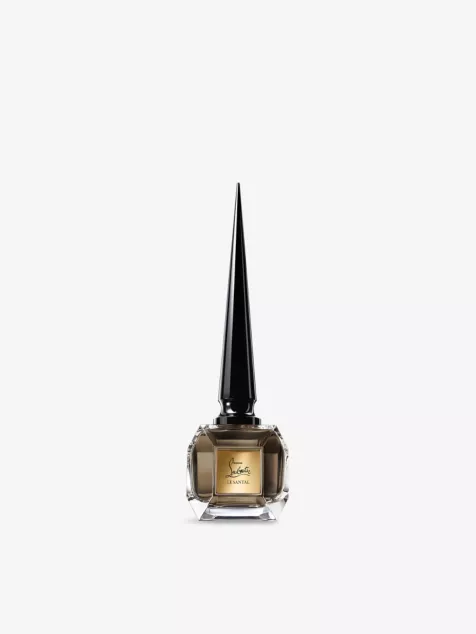Fig For Thought

Lusciously green, subtly creamy, and gently sweet — few fragrance notes evoke such a sensual, sun-drenched landscape as fig. This beloved botanical has long enchanted perfumers with its multifaceted nature, offering not just a single scent, but an entire olfactory journey through fruit, leaf, and milky sap. Whether you’ve fallen for a juicy fig accord basking in Mediterranean warmth, or the cool, vegetal snap of fig leaf in a contemporary composition, this note is quietly iconic.
Let’s delve into the fig tree’s fragrant trinity — fig fruit, fig leaf, and fig milk — and explore how each element brings something beautifully unique to perfumery.
Fig Fruit: Juicy, Sweet, Sun-Kissed
The scent of fig fruit in fragrance is instantly transportive. Think golden skin warmed by the sun, a honeyed sweetness with a gentle, jammy lushness. Fig’s natural aroma hovers between fruity and green, making it feel fresh yet indulgent. Often used in both gourmand and green compositions, fig fruit doesn’t have the sticky sweetness of other fruits like peach or plum — instead, it’s soft, rounded, and quietly sophisticated.
In perfumery, the fig fruit accord is typically created through a blend of synthetic molecules and natural elements (the raw fruit yields very little essential oil). Its character can be brightened with citrus, softened with vanilla or coconut, or given depth with woods and musk. In niche and artistic perfumery, fig often acts as a bridge between sweet and savoury, green and gourmand.
Try: Diptyque Philosykos – a cult classic that captures the full fig tree, but with a particularly creamy, ripe fig fruit heart.

Fig Leaf: Green, Fresh, Botanical
For those who prefer their fig with a green twist, fig leaf is where the magic lies. The scent of fig leaves is fresh, vegetal, and slightly bitter — imagine scrunching a leaf from the tree and catching the whiff of its subtly floral fibres. In olfactive terms, fig leaf brings a leafy brightness and a dewy texture that evokes shady gardens and coastal groves.
Perfumers often turn to fig leaf when looking to add a crisp, naturalistic quality to a composition. It can conjure up everything from the coolness of morning dew to the sun-dappled shadow of a fig tree at midday. The note pairs beautifully with galbanum, green tea, and other leafy notes to amplify its verdant, uplifting presence.
Try: Hermès Un Jardin en Méditerranée – a delicate, airy portrait of Mediterranean gardens where fig leaf plays a central role.

Fig Milk (or Fig Sap): Creamy, Lactonic, Skin-like
Then there’s the fig tree’s most intimate secret: its milk. When a fig leaf or branch is broken, a white, milky sap oozes out — and it’s this creamy, slightly woody aspect that perfumers replicate as fig milk. It adds an almost edible, skin-like warmth to fig-centric fragrances. Fig milk is milky in the way coconut or almond milk is — soft, lightly sweet, and gently nutty — rather than heavy or overly creamy.
This note often acts as a sensual base, binding together the fruitiness of fig with soft woods, musks, and floral touches. It lends a supple, second-skin feel that makes fig-based scents endlessly wearable. Fig milk works well in both feminine and masculine compositions, often blurring the lines between the two.
Try: Christian Louboutin Fétiche le Santal – an intense yet smooth blend where fig milk and sandalwood sensually entwine.

The Versatility of Fig
What makes fig truly fascinating in fragrance is its sheer versatility. Unlike some single-note ingredients, fig can embody multiple moods: it can be light and breezy or rich and enveloping. It can swing from green and fresh to creamy and indulgent. Whether in sunlit soliflores or complex, multi-faceted blends, fig’s presence always adds an unmistakable elegance and originality.
Some perfumers use fig as a central theme — a love letter to the tree in all its parts. Others weave it in subtly, as a supporting note that adds freshness, creaminess, or depth. It works equally well in warm-weather colognes, layered orientals, or minimalist, skin-scent-inspired blends.
Fig in the Fragrance World Today
Over the past two decades, fig has enjoyed a renaissance in niche perfumery. From the early 90s onward, with the launch of fragrances like L’Artisan Parfumeur’s Premier Figuier (widely acknowledged as one of the first true fig scents), fig has held a cult status among those seeking a fragrance that feels both natural and imaginative.
Today, you’ll find fig in everything from body oils and home scents to genderless Eau de Parfums that challenge traditional fragrance categories. Its gentle complexity makes it a natural fit for modern perfumery, where the emphasis often lies on mood, texture, and experience rather than classic structures.
Final Thoughts
Fig is not just a note — it’s a story. A fragrant embodiment of slow summer days, sun-warmed skin, the rustle of leaves, and the indulgence of ripe fruit plucked straight from the tree. Whether in the form of its sweet fruit, vibrant leaf, or soothing milk, fig offers an olfactive escape that is both grounding and uplifting.
For fig lovers and the fig-curious alike, there has never been a better time to explore this multifaceted muse. From minimalist interpretations to rich, layered blends, fig is endlessly adaptable — and always, somehow, a little magical.
The post Fig For Thought appeared first on The Perfume Society.
